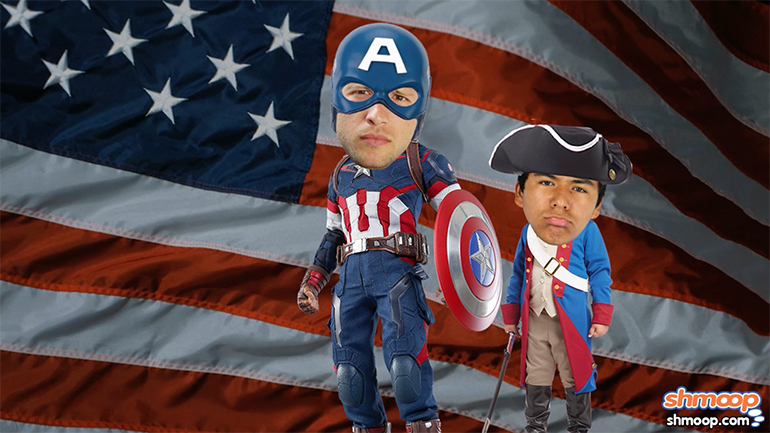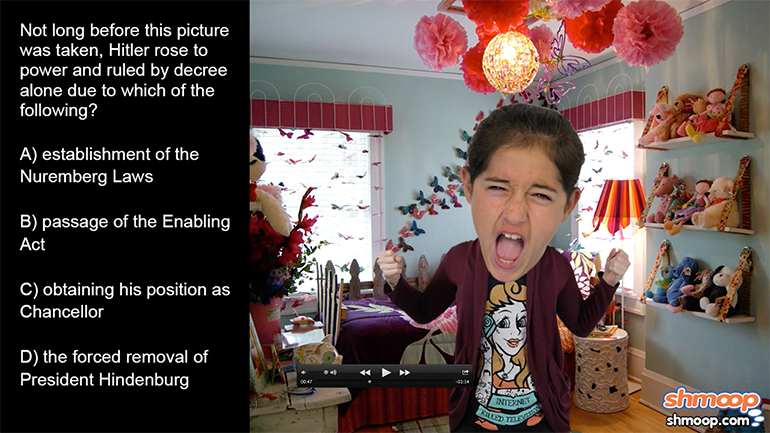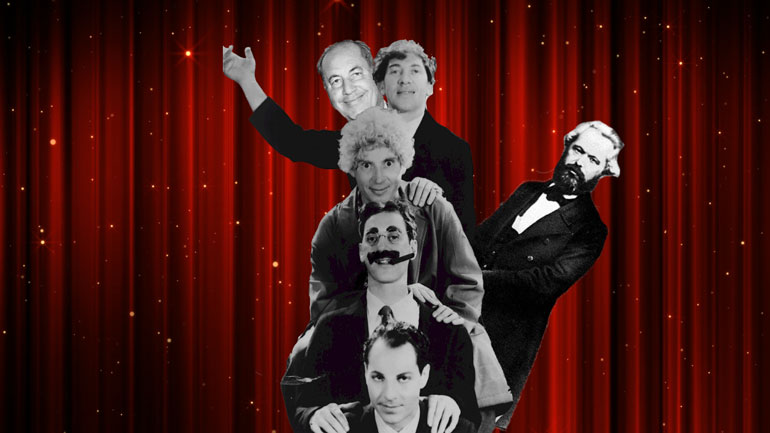ShmoopTube
Where Monty Python meets your 10th grade teacher.
Search Thousands of Shmoop Videos
AP European History 1.5 Period 4: 1914-Present 8 Views
Share It!
Description:
What phrase did Nazis frequently use to defend their actions during the Nuremberg Trials? Hint: "The voices told me to do it" came in a close second place.
Transcript
- 00:00
here's your shmoop du jour brought to you by excuses
- 00:07
now we know we know the dog ate your homework and you were feeling sick and [Boy in bed with a thermometer in his mouth]
- 00:10
your mom had a flat tire and you're abducted by aliens we've heard it all [Boy taken away by a UFO]
- 00:14
take a look at this image right here yeah Kristallnacht
- 00:19
all right well after the conclusion of world war ii and during the Nuremberg
Full Transcript
- 00:22
trials Nazis used which of the following phrases to excuse actions such as the [Question being written out]
- 00:29
one shown in the image and your potential answers but when your
- 00:34
mom took your iPad away is punishment for sneaking out of the house it was the [Mother taking an iPad away from her son]
- 00:38
worst thing ever right well okay there was also what the Nazis did in World War
- 00:43
two which actually was the worst thing ever the Nuremberg trials offered some [Soldiers on the battlefield]
- 00:47
semblance of closure to what was one of the most devastating painful and horror [Nazi soldiers at the Nuremberg trials]
- 00:51
to occur in the history of humanity so during this trial how did many of the
- 00:56
participating Nazis justify their actions but while we're not about to
- 01:00
argue with the sentiment war is hell especially in this context it's actually
- 01:04
a phrase made famous by William Tecumseh Sherman during the American Civil War [Picture of William Tecumseh Sherman]
- 01:09
not World War two the end justifies the means was a phrase written by
- 01:15
Machiavelli and put into practice by king louis xiv during his absolute rule
- 01:19
of france it wasn't mentioned once during the Nuremberg trial maybe under [Judge calling out the Nazi solider]
- 01:23
someone's breath but nothing allowed and actually there is no avoiding war is
- 01:28
also a Machiavellian phrase if the man was no saint
- 01:31
well this saying suggests that war is inevitable due to the nature of mankind [Two men fighting]
- 01:35
or hopefully a bit more optimistic here at Shmoop war isn't necessarily
- 01:40
inevitable unless there's only one muffin left in the breakroom and then [3 people start to fight over the muffin]
- 01:44
all bets are off here's from up all right well the correct answer is C the
- 01:47
Nazis employed the phrase that fell East bevelle or an order is an order to
- 01:53
excuse their action during the Nuremberg trial explaining that if that's just
- 01:57
following the orders they've I given you know regardless of morality well as [Answer C is ticked]
- 02:02
crazy as it sounds future of social psychology experiments like the ones [Man sat in a chair wearing a strange helmet]
- 02:05
performed by Stanley Milgram have shown that in different societies people do
- 02:10
often follow through with orders from authority figures
- 02:13
even if they know for certain that what they're being asked to do is morally [Man electrocuting a woman with a button]
- 02:18
wrong but we know you'd never do anything violent or immoral right [The 3 people are bandaged up and 1 of them is eating the last muffin]
Up Next
AP European History Period 1: 1450-1648 Drill 2, Problem 1. As a result of the meeting in the image, which of the following occurred?
Related Videos
AP European History Period 3: 1815-1914 Drill 2, Period 1, Les Demoiselles d'Avignon represented the beginning of which of the following art m...
AP European History Period 3: 1815-1914 Drill 2, Problem 4. Paintings like the one depicted above were a direct reflection of what?
AP European History 1.2 Period 4: 1914-Present Not long before this picture was taken, Hitler rose to power and ruled by decree alone due to which...
AP European History 1.4 Period 3: 1815-1914. As evidenced through the passage above, Karl Marx was a passionate leader and is considered the father...




